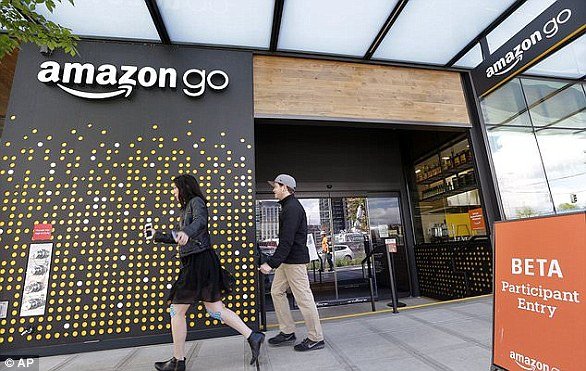
The nature of work is changing, we hear people say across media… So, what will the future of work ? And how will we define ourselves, in a world where work is changing so much ? We know that work is what we do to have a source of income, but we tend to forget how it is also a strong part of our identity. Once can say It is the crucible around which we form our identities, make a living and build relationships. We might hate going to work, or just love it, and live all our lives dedicated to it, but work is what defines us. But with the recent technological speed of innovation, work is an area that is being affected at an unprecedented speed.
This is not new. Major technological breakthroughs have always come along with high risk concerning work, to those that are more exposed to changes. It has happened in the past when the first industrial revolution left thousands of factory workers growing the unemployment lists or when Globalisation, and its subsequent digital transformation in the 1960s, drove entire countries to a permanent blackout.

Today’s new emergent technologies are likely to disrupt whole economical sectors with at least the same destructive force than the previous ones. Artificial Intelligence is prime amongst them and others are blockchain, Big Data or Robotics.
The RSA, an UK based charity dedicated to enrich society through ideas and action, has written and produced various reports about the future of work, and has named the new technologies transforming what we know as work, as “radical technologies” . They mention, in a recent article how radical technologies applications can vary immensely, “from autonomous vehicles to cancer-detecting algorithms, and from picking and packing machines to robo-advisory tools used in financial services, every corner of the economy has begun to feel the heat of a new machine age,”
It doesn’t take much to to see how transforming AI is in today’s world – and the world that’s coming. From the far east, the giant Chinese e-commerce company, JD.com, has just opened a fulfilment centre in Shanghai that can process 200,000 orders a day with just 4 employees. Google have just introduced an AI virtual assistant called Duplex that can mimic the human voice with extraordinary precision. Amazon, meanwhile, is planning to open soon checkout-less grocery stores in Chicago and San Francisco, called Amazon go, in what could be the first major transformation of bricks-and-mortar retail in decades.

The main difference now is that these technologies are compromising our precious western sources of income, as million of jobs might be at risk of being wiped out by robotics and automation. Fear of job losses range from all-out catastrophe to a fixable problem. Taken the UK as example, the University of Oxford estimate that 35 percent of UK jobs have the potential to be automated. In contrast, PwC suggest the figure is more likely to be 30 percent, while, on the other end, a 2017 McKinsey report said that roughly 5 percent of jobs are highly automatable.
If top-class institutes or universities can’t come to terms, how is the world is going to get prepared for such disruption and uncertainty when worker’s live sources might be at risk? The RSA think that we are still in time to take advantage of it, although a close and over-time control is needed. For that, they have launched Future Work Centre to monitor this process in a more in-depth way.
“Our goal is to equip policymakers, employers and educators with the insights they need to prepare today’s workforce for tomorrow’s workplace,” they said while, at the same time, they aim to promote new job’s standards in what they call “good work”. This means that their effort is to not just prepare for the future but to make sure that tomorrow’s workplace fulfils our vision of good jobs.
And they continue with “where necessary, we will push for policy and practice reform, but more importantly we will seek to reimagine our social contract — that web of explicit and implicit rights and obligations that govern the way we work,” in an whole new cultural paradigm that these technologies can bring along.
“While radical technologies hold out the promise of creating a better world of work, this is an outcome that must be worked towards rather than blindly hoped for. The Future Work Centre aims to do just that, using a combination of research, policy and practice advocacy, campaigning and practical pilots,” they state.
What if the Future of Work is No Work ?
Other possible scenarios for the future of work results from the blurring of the boundaries between what is work and what is leisure, or even not doing any work at all. This is enhanced by automated technology, even if we don’t exactly realise that when we use our phones we are using automated services.
Widespread internet enable our smartphones to act out as our private old style secretaries, when warning us about upcoming meetings, or other appointments. The ubiquity of smartphones and social media has blurred the boundaries between work and life. The same media we use to communicate with friends, relax and entertain ourselves, is the one most of us use to work. With the idea of cutting expense with large offices and utility bills, more and more companies offer employees, the possibility of working remotely which means that a large part of the work force works now from home, cafes, abroad, or even in a beach with good wifi. And even if we don’t think about it, shifting from working in a office to these broad range of possibilities, expands and changes what we understand as work and how we form our identity.

Finally, another radical possibility for the future of work, is no work at all, which will come with growing massive automation. Is that a good thing ?
Renowned author Jeremy Rifkin envisions what that will look like in his book “The zero Marginal cost society” daring to say how work, in a few decades can be seen with a disbelief similar to the one we use now when looking at slavery. He says: “An half century from now, our grandchildren are likely to look back at the era of mass employment in the market with the same sense of utter disbelief as we look upon slavery and serfdom in former times. The very idea that a human being’s worth was measured almost exclusively by his or her productive output of goods and services and material wealth will seem primitive, even barbaric, and be regarded as a terrible loss of human value to our progeny living in a highly automated world where much of life is lived on the Collaborative Commons.”
In his vision, strikingly similar to the world displayed in the scifi series Star Trek, in 5 to 6 decades, the world will be massively automated, and humans will be able to dedicate most of their times to developing themselves creatively and finding a deeper meaning to their lives.
The future will let us know what will happen.

Maria Fonseca is the Editor and Infographic Artist for IntelligentHQ. She is also a thought leader writing about social innovation, sharing economy, social business, and the commons. Aside her work for IntelligentHQ, Maria Fonseca is a visual artist and filmmaker that has exhibited widely in international events such as Manifesta 5, Sao Paulo Biennial, Photo Espana, Moderna Museet in Stockholm, Joshibi University and many others. She concluded her PhD on essayistic filmmaking , taken at University of Westminster in London and is preparing her post doc that will explore the links between creativity and the sharing economy.









